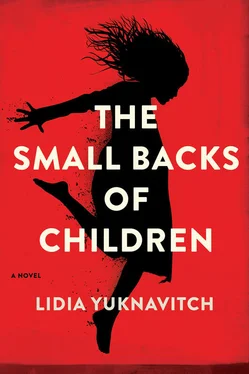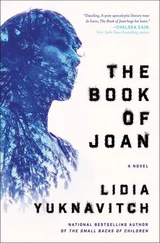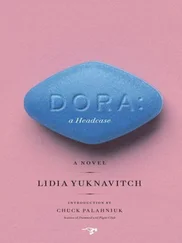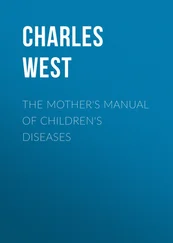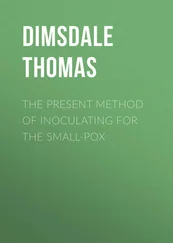Quietly as a child he opens the book, looks at pages randomly. Flipping through. Her novel. The one she’s writing. . was writing. Pieces of stories, little drawings and notes, and whole pages of narrative. He stops on a page and starts to read, with only the moon for light:
The Girl
You must picture your image of Eastern Europe.
In your mind’s eye.
Whatever that image is.
However it came to you.
Winter.
That white.
One winter night when she is no longer a child, the girl walks outside, her shoes against snow, her arms cradling a self, her back to a house not her own but some other. It is a year after the blast that has atomized her entire family in front of her eyes. It is a house she has lived in with a widow woman who took her in — orphan of war, girl of nothingness. .
He stops reading for a minute. He feels like he knows the girl. He feels like he can see her. Has he read this before? No, that’s impossible. He looks down again and reads on, and in the reading he begins to see images in frames:
On the ninth day the widow takes the food straight to the girl. She squats down on the ground. The girl immediately starts to point to her creations and name them. The woman nods. They eat carrots. When the girl is finished naming, the woman points to a smooth blue-gray stone, which seems to inhabit a forest of sticks.
Vilkas, the girl says.
Wolf.
On the tenth day the girl finishes the city and enters the widow’s house.
Inside, the house is filled with books and photographs. Books and books from all places and all times. Old history books with spines reddish brown like old blood, more recently published books with the sheen and glow of the West. Oversize books and palm-size books, every color imaginable, titles filling the room like voices. Books and photographs, more books and photographs than dishes or furniture. Photographs of Paris and Germany, of America, Poland, Prague, Moscow. Photographs of crowds in squares, their coats and hats testaments to cold, photos of farmers and villagers, their faces plump and red as apples as they break from the fields for something to eat and drink. Photographs of animals caught entering or emerging from the forest, their animal faces wary and low to the ground, their animal eyes marking the distance between species. Books and photographs of trees and houses and festivals, of musicians and artists and mothers, of statesmen and children, of soldiers and guns and tanks and bodies and snow made red. Books and books about art. Photographs of the widow. Of her hands. Her cheek and hair. The white of her collar and the nape of her neck. Photos taken by her husband who was arrested, beaten, and stolen away to a Siberian prison.
The widow broken by loss and the girl with the blown-to-bits family begin to live together in this house made of art.
This house made of art.
His heart is pounding. His head is pounding. No — it’s the door. It’s someone at the front door. At first he’s frozen, stuck in the snow-covered story of a girl inside the words of his wife. Then he’s back in his own house in the dark. He tucks the journal underneath an arm and moves toward sound and action.
It’s the poet. At the door. The filmmaker can see her face through the thick-paned glass. He opens it. The night air nearly snaps his psyche in two.
She rubs her cropped thatch of hair and the leather of her black biker jacket makes an ache sound.
He embraces her. The hug is awkward, the journal still under his arm. The poet’s body feels to him like it is alive in a way that his is not. Like she’s filled with current.
The poet twitches away from him, and moves into the house. “Are you going to turn a light on, or do you just want to sit in the dark like we’re in a movie?” she says.
“Sorry. I’m just. .”
“Exhausted?”
The filmmaker turns on a lamp. The room honeys-over in hue. He goes into the kitchen to retrieve his wife’s bottle of Balvenie scotch. He hands the bottle to the poet. She thanks him, then proceeds to drink straight from the bottle. He sees her neck screen size: the muscles are filmable, her head tilted back and back in the way of a real drinker. He likes her masculinity. They get along.
She stares at the thick of him. “Would you like to just sit here together, or do you feel like talking?” She pulls a fattie and a lighter out of her black leather jacket pocket, wets it between her lips, lights up, and hands it to him.
He doesn’t say anything, but he holds it up between them with a quizzical look on his face that asks, Customs?
She shakes her head. “Got it on this side. The orderly was holding.”
He’s glad she’s here. The poet on their couch across from him, as if things were the way they’re supposed to be.
“We have to do something,” she says. Her words echo through his body.
The filmmaker smashes his empty beer bottle onto the coffee table in front of them. The sound tightens the cords in the poet’s neck and jaw, but she doesn’t flinch.
Silence.
The filmmaker sets the journal down on the table as if this whole night is moving normally. How does anyone survive any relationship? How does anyone move through humans without killing them, or themselves?
The two of them stare at the object.
“Yeah. I don’t know,” the filmmaker says. “This is hers. I don’t know if there’s anything in there that matters. I don’t even know why I’m telling you this.”
“Lemme see it.” The poet holds out her hand.
The filmmaker opens the journal to the part he was reading before and hands it to the poet. He puts his head in his hands, for he feels as if it might sever from his neck at any moment. Partly he wishes it just would. The second the poet’s voice begins, the writer’s story rises up to them something like heat does, invisible and under the spell of physics. She reads the writer’s words aloud:
One day the girl is reading a poem in the widow’s house. Next to the poem is a drawing of the poet: Walt Whitman. Next to the drawing the girl’s imagination retrieves something it has not touched for a long while. A father. The girl’s father before the blast was a poet. There. It is a thought, “father,” it is the thought, “poet,” and it does not kill her. The girl closes her eyes and fingers her tangles of blond hair and goes back, perhaps for the first time, to the memory of her father, her family before the blast.
Her father was a poet, her mother a weaver. Her father could engineer and build anything with only his hands, her mother could sing and make medicines and calm a child into dream — everything they were, happened between their hands. Her father taught her poems, and how to build a tiny city from mud and straw and twigs. Her mother taught her songs and how to make a pattern with cloth and color. And there was a brother. She lets the word become an idea. Brother. She remembers the touch of his hands. The warmth they shared when their cheeks met. How he smelled next to her before they drifted into sleep at night. Her mother the weaver. Her father the poet. Her other: brother.
She looks back at the image of Walt Whitman. She wonders, is a poet really a poet if his only songs are to his daughter, his wife, his son? If his extraordinary lyric merely puts children to sleep like moon whisper, or fills a house with star-shaped dreams? Is a poet a poet if there are no books that carry his words, his name, a drawing of his face?
She is the not-dead daughter of her father the poet.
In her memory she is four. She is on her father’s shoulders in the darkened woods, next to a frozen lake. They skirt the woods without completely entering; forest animals scrutinize their movements. She is laughing, and that’s how she remembers it: she is holding tight to her father’s ears, he is saying, “Not so tight, my tiny, not so tight, you will pull your father’s ears from his head!” Her laughter and his.
Читать дальше
